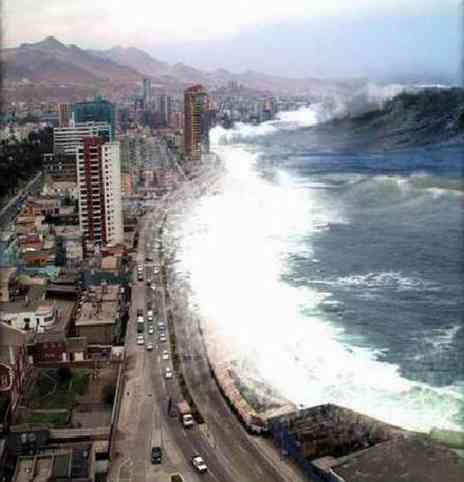
Hot race for riches in Arctic emerges Nations scramble as ice cap melts
By Doug Mellgren, Associated Press | March 25, 2007 HAMMERFEST, Norway -- Barren and uninhabited, Hans Island is very hard to find on a map. Yet these days the Frisbee-shaped rock in the Arctic is much in demand -- so much so that Canada and Denmark have both staked their claim to it with flags and warships. The reason: an international race for oil, fish, diamonds, and shipping routes accelerated by the impact of global warming on earth's frozen north. The latest report by the UN Intergovernmental Panel on Climate Change says the ice cap is warming faster than the rest of the planet and ice is receding, partly due to greenhouse gases. It's a catastrophic scenario for the Arctic ecosystem, for polar bears and other wildlife, and for Inuit populations whose ancient cultures depend on frozen waters. But some see a lucrative silver lining of riches waiting to be snatched from the deep, and the prospect of timesaving sea lanes that could transform the shipping industry the way the Suez Canal did in the 19th century. The US Geological Survey estimates the Arctic has as much as 25 percent of the world's undiscovered oil and gas. Moscow reportedly sees the potential of minerals in its slice of the Arctic sector approaching $2 trillion. All this has pushed governments and businesses into a scramble for sovereignty over these suddenly priceless seas. Regardless of climate change, oil and gas exploration in the Arctic is moving full speed ahead. The State-controlled Norwegian oil company Statoil ASA plans to start tapping gas from its offshore Snoehvit field in December, the first in the Barents Sea. It uses advanced equipment on the ocean floor, remote-controlled from the Norwegian oil boom town of Hammerfest through a 90-mile undersea cable. Alan Murray, an analyst with the consulting firm Wood Mackenzie, said most petroleum companies are now focusing research and exploration on the far north. Russia is developing the vast Shkotman natural gas field off its Arctic coast, and Norwegians hope their advanced technology will find a place there. The climate changes could open the North Pole region to easy navigation for five months a year, according to the latest Arctic Climate Impact Assessment, an intergovernmental group. That could cut sailing time from Germany to Alaska by 60 percent, going through Russia's Arctic instead of the Panama Canal. Or the Northwest Passage could open through the channels of Canada's Arctic islands and shorten the voyage from Europe to the Far East. And that's where Hans Island, at the entrance to the Northwest Passage, starts to matter. The half-square-mile rock, just one-seventh the size of New York's Central Park, is wedged between Canada's Ellesmere Island and Danish-ruled Greenland and for more than 20 years has been a subject of unusually bitter exchanges between the NATO allies. Canada, Russia, and Denmark are seeking to claim waters all the way up to the North Pole, saying the seabed is part of their continental shelf under the 1982 United Nations Convention on the Law of the Sea. Canada says the Northwest Passage is its territory, a claim the United States disputes, insisting the waters are neutral.

No comments:
Post a Comment